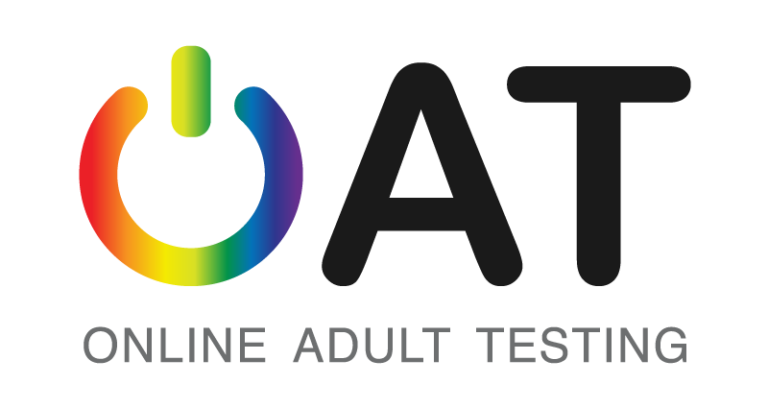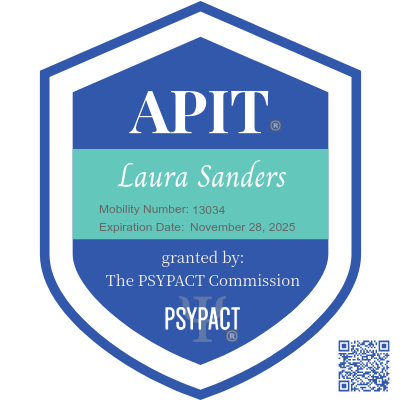Autism Spectrum Disorder Online Testing for Adults
Convenient & Relaxed Assessment for ASD

Autism spectrum disorder (ASD) is a neurodevelopmental disorder that causes differences in brain function. Those who are diagnosed with ASD may experience difficulties with social interactions, communication, repetitive behaviors, hyper-focused interests, and different ways of learning or experiencing the world. As a spectrum disorder, there are a wide range of symptoms and neurological differences that impact day-to-day life to varying extents. While people who do not meet diagnostic criteria for ASD can experience some of these symptoms, those who are diagnosed with this condition will experience some limits or challenges to their daily lives due to their diagnosis. On this page, we’ll discuss exactly what ASD is, how it’s diagnosed, and what you can expect from working with the OAT (Online Adult Testing) team.
What Is ASD?
ASD, also simply referred to as autism, is a neurodevelopmental disorder that results in numerous symptoms that may be subtle or severe. In many cases, these neurodevelopmental differences are noticed early in life. In other cases, they may be subtle earlier on and lead to more severe symptoms later in development. This is why we see many of our adult ASD diagnoses. Because ASD is a spectrum disorder, everyone’s experience will be different, but some of the common symptoms of ASD in adults include struggling to:
- Understand or empathize with the thoughts and feelings of others
- Make and sustain friendship and other relationships
- Engage in social situations or preferring being on your own
- Identify and express your own emotions
- Understand sarcasm or idioms like “it’s raining cats and dogs”
- Express opinions without sounding rude or overly blunt
- Change routines or feeling anxious when your routine changes
- Read the room or understand social cues like when to make eye contact
- Accept being touched by others or even getting physically close to others
- Discuss subjects other than specific interests that are fixations
- Doing something spontaneously without planning beforehand
Who Is at Risk for ASD?
Anyone at any age can be diagnosed with ASD. It is a neurodevelopmental disorder, so it is most frequently diagnosed in children. However, adults can also receive a first diagnosis with ASD if earlier developmental symptoms weren’t noticed. While anyone can be diagnosed with ASD, there are some factors that may mean a greater chance of ASD diagnosis, including:
- Genetics – parents who have one child with ASD may be more likely to have other children who are also diagnosed with this condition. These parents may also exhibit some signs of ASD themselves. Other family members may also be diagnosed with ASD.
- Gender – people assigned male at birth are nearly four times more likely to be diagnosed with ASD.
- Preterm births – those born before 26 weeks are more likely to experience development and neurodevelopmental conditions, including ASD.
- Parental age – additional research is needed, but there may be a connection between babies born to older adults and ASD diagnosis.
- Other health conditions – other genetic conditions that impact the brain may present with similar symptoms or contribute to an ASD diagnosis.

How Is ASD Diagnosed?
There is not a single test that can be used to confirm an ASD diagnosis. Instead, assessment psychologists administer a battery of tests to differentiate between signs associated with ASD and other conditions with similar or overlapping symptoms. ASD diagnostic testing may include self-rating scales, collateral-rating scales (completed by a loved one), collateral information from parents, diagnostic interviews, and other assessments as dictated by the individual’s needs. In order to be diagnosed with ASD, an adult must meet the following criteria:
- Difficulties in social interaction and communication that include deficits in social-emotional reciprocity, nonverbal communication, and developing and sustaining relationships.
- Restricted or repetitive patterns of behaving or hyper-focusing on specific interests or activities that presents in at least two of the following four ways: repetitive speech or movements, inflexible adherence to specific routines, abnormal focus on highly specific interests, and hyper-sensitivity to environmental input.
- These symptoms need to present in childhood, but they may develop, change, or become more apparent in later development.
- These symptoms must cause significant impairment in personal, professional, academic, and other settings.
- These symptoms aren’t more clearly explained by other diagnoses.
Who Can Receive Online ASD Assessment?
Due to the nature of online assessment for ASD conducted via telehealth, it is only appropriate for adults aged 18 and up. Our practice is proudly affirming for LGBTQIA+ individuals, including those who identify as transgender and non-binary. Due to a recent increased need for assessment and psychological services, PsyPact was created. This agreement allows high demand psychological services to be provided across state lines via telehealth. Dr. Sanders and the OAT team are happy to offer comprehensive assessment and testing services via telehealth to residents of all states that participate in PsyPact. Keep in mind that all services need to be received while the client is located within a PsyPact state. The participating states are listed below:
Alabama
Arizona
Arkansas
Colorado
Connecticut
Delaware
District of Columbia
Georgia
Idaho
Illinois
Indiana
Kansas
Kentucky
Maine
MARYLAND
Michigan
MINNESOTA
MISSOURI
Nebraska
Nevada
New Hampshire
New Jersey
North Carolina
Ohio
Oklahoma
Pennsylvania
South Dakota
Tennessee
Texas
Utah
Vermont
Virginia
West Virginia
Wisconsin
Wyoming
What Is the ASD Online Testing Process?
- Use our contact button to get in touch with our administrator
- You will be directed to set up an account using the TherapyPortal portal and offered an appointment date and time
- Complete consent forms within 48 hours and pay the $500 deposit to secure your appointment
- Dr. Sanders will evaluate your intake information and respond in the TherapyPortal messaging portal about two weeks prior to your appointment
- You’ll complete self-rating scales
- A family member, friend, or another person who knows you well will also be asked to complete collateral-rating scales
- Return all rating scales via the TherapyPortal messaging system prior to your appointment
- You will visit with Dr. Sanders for a telehealth appointment that generally lasts between one and three hours
- Make sure you are comfortable and in a place where you can speak privately
- Administrative staff will collect the final balance ($1,500) on your account on the day of the appointment
- Dr. Sanders will carefully review the data and compile a thorough report that provides diagnostic information as well as any recommendations for ongoing treatment
- You will receive the report in the TherapyPortal messaging portal about two to four weeks after the appointment
- A final feedback session will be scheduled to discuss diagnoses, answer any questions, and provide additional treatment recommendations
How Much Does Online ASD Testing Cost?
We understand that assessment is a big investment of your time and money. It’s important to the OAT team that our clients feel comfortable with the cost of their treatment and that they are never blindsided by pricing. As healthcare providers, it is always our responsibility to provide accurate good faith estimates before offering treatments, and we hope our clients except this of all medical providers. A good faith estimate can change prior to finalizing treatment, but if the cost increases by more than $400 and you’re not notified of or asked to approve the added expense, you have the right to dispute your bill.
We understand that providing an accurate estimate of treatment is an essential part of our job, and we take this responsibility very seriously. During intake, our team will offer you a personalized invoice that breaks down the pricing of our online assessments for ADHD and ASD.
While we do provide individualized invoices that may differ based on your individual assessment needs, the majority of our online testing services cost $2,000. We do not take insurance. The cost of assessment is payable using credit or debit cards. If your insurance benefits include a flexible spending account (FSA), health savings account (HSA) or other supplemental spending account, you may be able to utilize these funds for your testing costs. Discuss this option with your benefit provider prior to scheduling testing.


